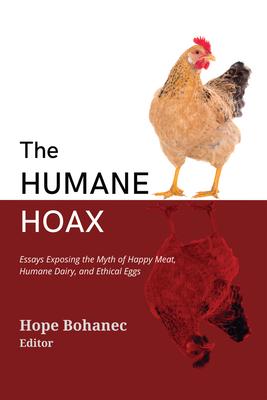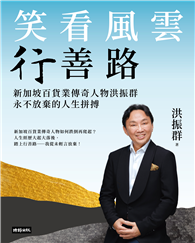This groundbreaking volume uncovers and critiques how animal agriculture’s new alternative marketing and labeling is lulling consumers into a false sense of industry improvement. Humanewashing and greenwashing is becoming more prevalent and pervasive than ever.
As consumers become increasingly aware of the animal agriculture industry’s cruelty and environmental devastation, clever industry marketers are adapting with alternative "humane" and "sustainable" labeling and marketing campaigns. The term "humane hoax" is defined as new language and labels in animal product marketing that convey a false narrative of humane treatment and sustainable management of farmed animal operations. "Cage-free," "certified humane," and other comforting labels are no longer elusive, dusty items only seen in the back corners of health food stores. They are now as numerous as cows on a feedlot, spotted in common places like discount markets and your local coffee shop. Industry humane washing and greenwashing create reassuring language and euphemistic labels that tell a story of a supposed distinction from conventional animal products. But the reality on the ground, in the manure pits, during the mechanical milking, and inside the terrifying slaughterhouses is fundamentally unchanged, despite promises of something "new" and "improved." In the absence of accurate information, it has never been more important to educate consumers on the realities behind the industry lies, and people are hungry for the truth. The Humane Hoax features a range of engaging and thought-provoking essays from eighteen notable experts who are at the forefront of this marketing and societal shift, chronicling every aspect with in-depth analyses and intellectual rigor. Among other timely topics, we will explore how the humane hoax intersects with feminism and environmentalism, how it is represented in the media, and the affects it has on human and non-human communities alike. The Humane Hoax will leave the reader questioning everything that they have been conditioned to believe as consumers.| FindBook |
有 1 項符合
The Humane Hoax: Essays Exposing the Myth of Happy Meat, Humane Dairy, and Ethical Eggs的圖書 |
 |
The Humane Hoax: Essays Exposing the Myth of Happy Meat, Humane Dairy, and Ethical Eggs 出版社:Lantern Publishing & Media 出版日期:2023-04-18 語言:英文 規格:平裝 / 260頁 / 普通級/ 初版 |
| 圖書館借閱 |
| 國家圖書館 | 全國圖書書目資訊網 | 國立公共資訊圖書館 | 電子書服務平台 | MetaCat 跨館整合查詢 |
| 臺北市立圖書館 | 新北市立圖書館 | 基隆市公共圖書館 | 桃園市立圖書館 | 新竹縣公共圖書館 |
| 苗栗縣立圖書館 | 臺中市立圖書館 | 彰化縣公共圖書館 | 南投縣文化局 | 雲林縣公共圖書館 |
| 嘉義縣圖書館 | 臺南市立圖書館 | 高雄市立圖書館 | 屏東縣公共圖書館 | 宜蘭縣公共圖書館 |
| 花蓮縣文化局 | 臺東縣文化處 |
|
|
圖書介紹 - 資料來源:博客來 評分:
圖書名稱:The Humane Hoax: Essays Exposing the Myth of Happy Meat, Humane Dairy, and Ethical Eggs
內容簡介
作者簡介
Hope Bohanec has been active in animal protection and environmental activism for thirty years and has published the book The Ultimate Betrayal: Is There Happy Meat? She is the executive director of Compassionate Living and the host of the Hope for the Animals podcast. Hope co-founded the Humane Hoax Project, the Ahimsa Living Project, and has organized numerous online and in-person events, including the Humane Hoax Online Conference, the Humane Hoax Chicken Webinar, and the Sonoma County VegFest. Over the last three decades, Hope has worked for the national non-profits United Poultry Concerns and In Defense of Animals and has contributed chapters to two anthologies.
|











